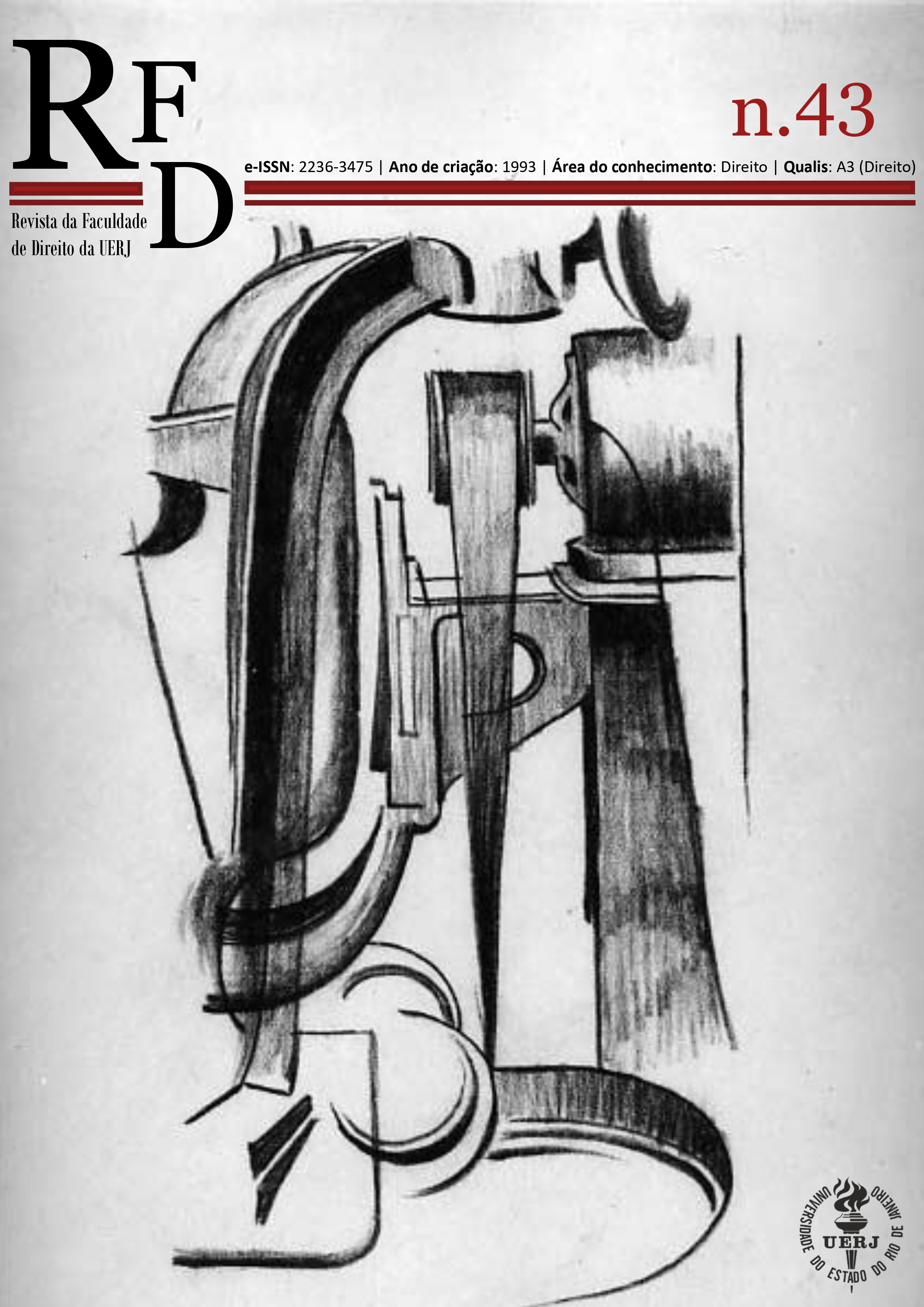TEORIA CRIMINOLÓGICA E DOSIMETRIA DA PENA
UM DISCURSO CRÍTICO NECESSÁRIO À DIMINUIÇÃO DAS DISFUNCIONALIDADES DO POTESTAS PUNIENDI.
DOI:
https://doi.org/10.12957/rfd.2024.59885Palavras-chave:
Teoria da Pena, Discurso crítico da teoria da pena, Teoria negativa, Teoria materialista/dialética, Poder punitivo,Resumo
O presente paper teve como objetivo avaliar os discursos jurídicos das teorias da pena para verificar qual delas – ou se todas – são adotadas pelo Brasil e qual seria a razão de sua adoção. Em seguida, se pretendeu demonstrar o equívoco da adoção de uma teoria oficial da pena. Para essa tarefa, o artigo buscou trazer as principais teorias oficiais da pena e suas fundamentações jurídico-filosóficas, bem como os principais modelos teóricos críticos sobre as teorias oficiais. A revisão bibliográfica permite apresentar as críticas a essas teorias para, em seguida, apresentar a teoria negativa e a teoria materialista/dialética. Ambas têm como escopo diminuir as disfuncionalidades latentes que o sistema punitivo impõe aos marginalizados pelo poder punitivo normatizador. O tema tratado é, portanto, divergente na doutrina, mas é uníssono na jurisprudência, que adota a teoria criminológica oficial e utiliza a dosimetria da pena para legitimar o discurso da casta social mais abastada em detrimento daqueles que possuem fatores sociais negativos. Com isso, suas disfuncionalidades – altamente prejudiciais ao estado de direito e às garantias individuais no Estado democrático de Direito – criam um maior âmbito de incidência, fazendo com que o estado policial se sobreponha ao estado de direito.
Palavras-Chave: Teoria da Pena. Discurso crítico da teoria da pena. Teoria negativa. Teoria materialista/dialética. Poder punitivo.
Downloads
Publicado
Como Citar
Edição
Seção
Licença
Direitos Autorais
oArtigos publicados na Revista da Faculdade de Direito da UERJ (RFD/UERJ)
Os Direitos autorais dos artigos publicados pertencem à Revista da Faculdade de Direito da UERJ (RFD/UERJ). É permitida a reprodução total ou parcial dos artigos desde que citada a fonte.
oReprodução parcial de outras publicações
Artigos submetidos que contiverem partes de texto extraídas de outras publicações deverão obedecer aos limites especificados para garantir originalidade do trabalho submetido. Plágio em todas as suas formas constitui comportamento antiético e é inaceitável.
Recomenda-se evitar a reprodução de tabelas e ilustrações, extraídas de outras publicações. O artigo que contiver reprodução de uma ou mais tabelas e/ou ilustrações de outras publicações só será encaminhado para análise se vier acompanhado de permissão escrita do detentor do direito autoral do trabalho original para a reprodução especificada na Revista da Faculdade de Direito da UERJ (RFD/UERJ). A permissão deve ser endereçada ao autor do trabalho submetido. Em nenhuma circunstância a Revista da Faculdade de Direito da UERJ (RFD/UERJ) e os autores dos trabalhos publicados nesta revista repassarão direitos assim obtidos.
·Os trabalhos não aceitos para a publicação serão devolvidos aos autores, se solicitado.
A Revista da Faculdade de Direito está licenciada com uma Licença Creative Commons Atribuição 4.0 Internacional.
Este trabalho está licenciado sob uma Licença Creative Commons 4.0, Atribuição-Sem Derivações.
Esta licença permite copiar e redistribuir o material em qualquer suporte ou format para qualquer fim, mesmo que comercial, desde de que citada a autoria original.











